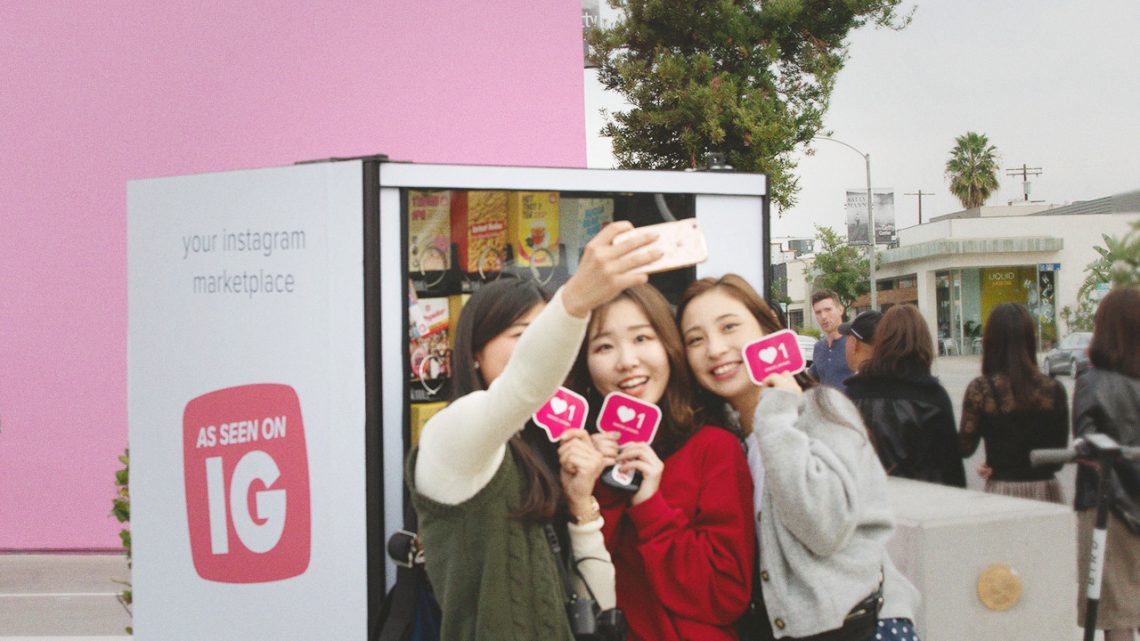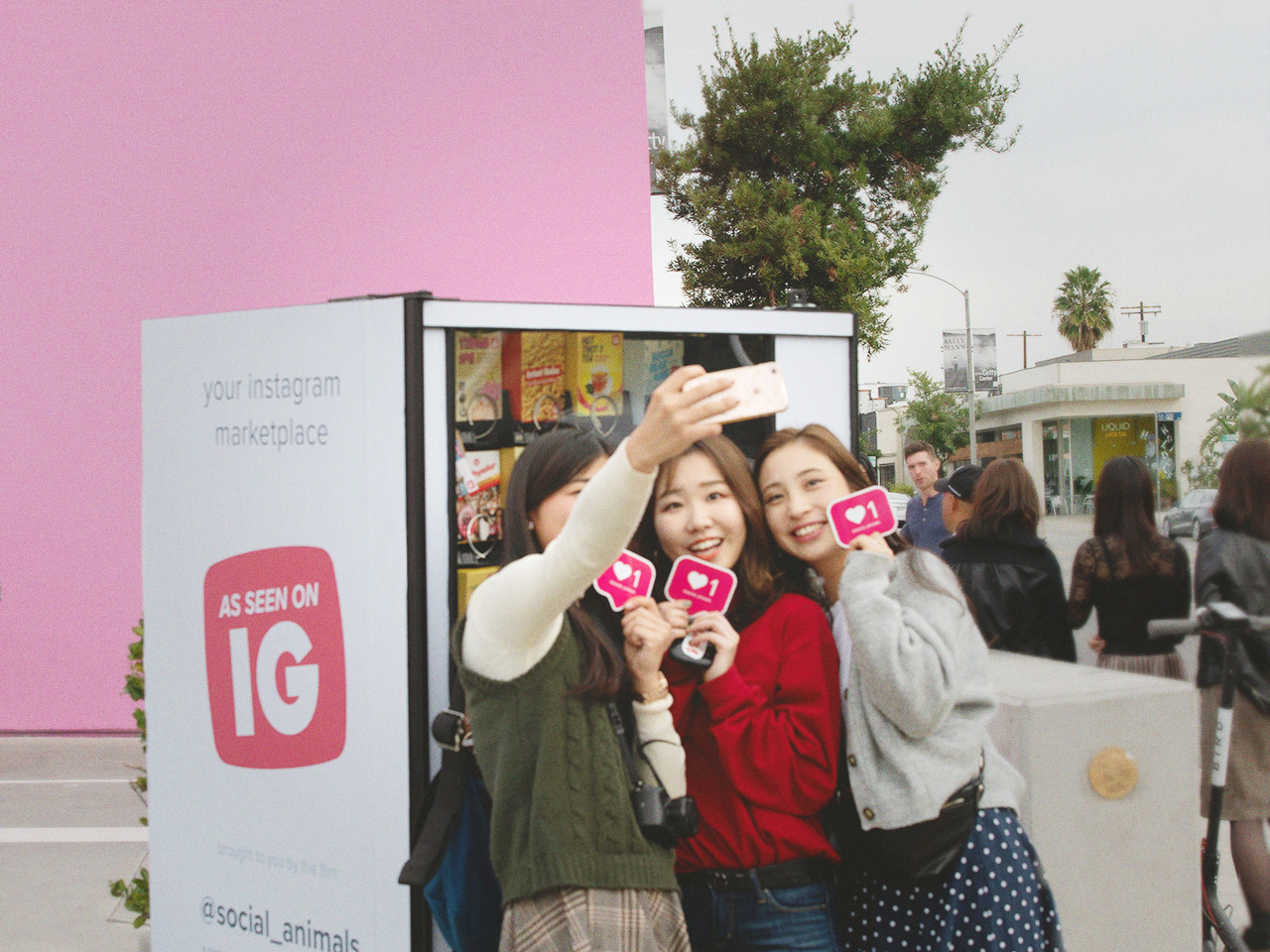
A Subversive Instagram Vending Machine Just Hit Los Angeles
December 13, 2018If you’ve found yourself roaming popular tourist destinations in LA this past week, you may have come across a vending machine urging you to swipe your credit card to buy a candy-shaped box of “like & likes,” “witty captions,” or “DM sliders.” Pay $10 and you can buy 1,000 fake Instagram followers for your profile. Or you can purchase a “hashtag 8 ball” that tells you whether to post the caption you’re thinking of or not. The trippy traveling display, currently at the Ace Hotel in Downtown LA, is a marketing promotion for a new documentary released on iTunes this week, Social Animals , which follows the highs and lows of three teenagers aspiring for Instagram fame over two years. The well-received film premiered at SXSW in March, and follows a rising daredevil street photographer from Queens named Humza Deas; aspiring fashion mogul Kaylyn Slevin; and a Ohio student Emma Crocket, who represents those of us just trying to exist in today’s social media minefield.
Over the past two days, the movie’s marketing team, Conscious Minds, has placed two vending machines in popular LA tourist locations like Venice Beach, Melrose, and the downtown Walt Disney Concert Area for a few hours at a time, prompting onlookers to take pictures with it. According to Social Animals producer Blake Heal, they’ve purchased over 100 of its products, which are sometimes pure jokes and other times actual Instagram currency packaged in a silly way. For the latter, the buyer DMs a code to the Social Animals Instagram page and the marketing team sources them followers and likes from websites like buzzoid and igramfollower.

There have been other projects that move criticism of internet phenomenons into the real world; a recent experiment by the Columbia Journalism Review took fake headlines from the internet and placed them on fake newspapers on newsstands in New York. If pedestrians opened one, they’d find a pamphlet inside explaining how consumers can spot and avoid fake news the next time around. But that example also highlights the trouble with these kind of experiments—how effective are they, if it’s likely someone could feel annoyed the fake newspaper was on the shelf in the first place or find the pamphlet condescending? Similarly, it’s hard to imagine that someone obsessed enough with Instagram to buy 1,000 fake followers would suddenly see a new, positive perspective when they realize the machine is making fun of them. And there’s always the possibility that some could buy products to sincerely boost their profile, especially through the anonymity of their website.
To its credit, Social Animals, has generally been positively received as a compassionate non-judgmental look at the struggles and triumphs of its three leads. Director Jonathan Ignatius takes the film beyond the way teens use Instagram to also incorporate why their hobbies and backgrounds have lead them to care deeply about the topics they’re known for online. One gets the sense that rising photographer Deas would still be passionate about his photos if Instagram never existed, and, likewise, that Slevin would still have an eye for entrepreneurship. This light touch means the tone comes across as less finger-wagging than it could when it does start exposing the dark side of Instagram, like the cruel comments popular influencers recieve and the anxiety of feeling like an outcast online.
It’s no surprise the Instagram vending machine went a lot further with its commentary than the nuanced film it’s designed to promote. The marketers behind movie campaigns are notorious for playing into elaborate gimmicks, like when Deadpool 2 created a fake Tinder account, holiday cards, and an ad campaign that placed their characters in posters for other movies. Or when The Dark Knight Rises sent fans in 300 global cities on a hunt to take a picture of Batman graffiti that could gain them access to the movie’s third trailer. But Social Animals’ Instagram vending machines are still noteworthy, for their meta commentary on the subject it’s advertising, using the incentives of our current culture to sneakily direct money toward dismantling it. The machine proves the necessity of its film, and also the inescapability of social media’s influence on every way we communicate, including in person.
Sign up for our newsletter to get the best of VICE delivered to your inbox daily.
Follow Taylor Hosking on Twitter.


